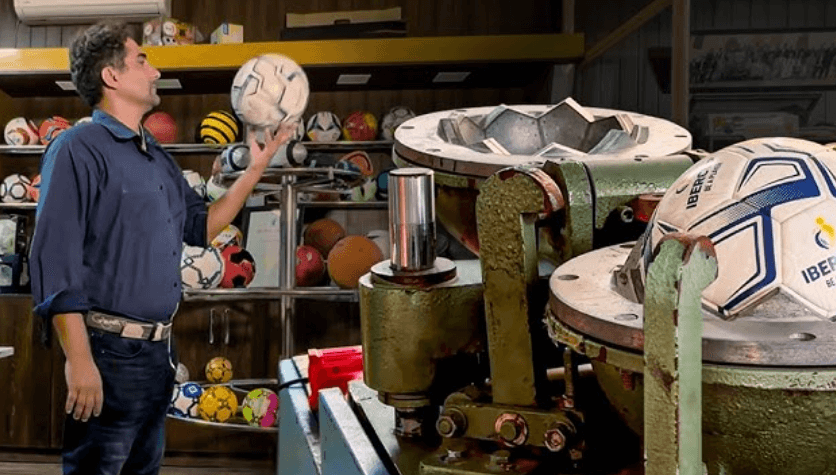
Bulk Sports Balls in Modern Manufacturing Industry
Introduction to Sports Equipment Production
The sports industry has grown into a global powerhouse, and manufacturing plays a central role in meeting the increasing demand for high-quality equipment. One of the most essential categories in this sector is sports balls, which are required by schools, clubs, academies, and professional leagues. With the growing trend of bulk sports balls orders, manufacturers are scaling up production processes to supply institutions and retailers worldwide.
Rising Demand for Bulk Orders
Organizations such as schools, training academies, and gyms purchase large quantities of sports balls for daily practice and events. Buying in bulk not only reduces the cost per unit but also ensures consistent quality across the equipment. This demand has led manufacturers to establish specialized production lines capable of meeting high-volume requirements without compromising durability.
Material Selection in Manufacturing
The production of sports balls requires careful material selection to ensure performance, durability, and player safety. Rubber, synthetic leather, polyurethane, and composite materials are widely used, depending on the type of ball. For instance, basketballs often utilize composite leather for grip and bounce, while footballs may be made from synthetic leather for weather resistance. When manufacturers produce bulk sports balls, they source these materials in large quantities, reducing procurement costs and ensuring consistency in each batch.
Technological Advancements in Production
Modern manufacturing units integrate automation and precision machinery to maintain uniformity. High-speed molding machines, robotic painting systems, and automated stitching methods help scale production effectively. For sports balls requiring seams, such as soccer balls, machine-stitching technology ensures accuracy and reduces human error. This level of precision is especially important when producing large orders where consistency across thousands of units is expected.
Quality Control in Mass Manufacturing
While speed and efficiency are critical, maintaining product quality remains the top priority. Bulk orders are subjected to rigorous quality checks, including weight, bounce, grip, and durability tests. Random sampling from large batches ensures that each ball meets international sports standards. Manufacturers also focus on safety certifications, especially when producing equipment for younger athletes.
Eco-Friendly Approaches in the Industry
Sustainability has become an important factor in the sports equipment industry. Manufacturers are now exploring eco-friendly raw materials, recyclable packaging, and energy-efficient production lines. The adoption of biodegradable materials and water-based inks in branding also highlights the industry’s shift toward greener practices. Large-scale orders of bulk sports balls can significantly reduce environmental impact if these sustainable approaches are adopted consistently.
Global Trade and Distribution
The manufacturing of sports equipment is not limited to local markets. Bulk orders often travel across continents, with Asia being one of the largest producers. Countries like China, Pakistan, and India export millions of sports balls annually to North America, Europe, and the Middle East. Efficient logistics, warehouse management, and shipping networks ensure that large quantities reach retailers, distributors, and institutions on time.
See also: How Tech Is Making Live Casino Games More Immersive Than Ever
Cost Efficiency in Bulk Purchases
One of the main reasons for the rising popularity of bulk sports balls is cost efficiency. Manufacturers offer reduced rates for large orders since production costs per unit drop significantly with volume. This provides schools, sports academies, and retailers with affordable access to quality equipment while ensuring that players always have enough resources for training.
Customization for Large Orders
Another growing trend in the industry is customization. Teams, schools, and corporations often require their logo, name, or unique design printed on the sports balls they order. Manufacturers offer advanced printing and embossing techniques to meet these demands. In the case of bulk orders, customization is streamlined to ensure consistent branding across all units without delaying production timelines.
The Role of Innovation in Future Growth
The sports equipment industry continues to evolve with new innovations. Smart balls equipped with sensors are being tested for performance tracking, offering real-time data to players and coaches. While such technology is still developing, it represents the future of sports manufacturing. Large-scale production of bulk sports balls may soon integrate smart features, opening opportunities for both athletes and manufacturers.
Conclusion
The manufacturing of bulk sports balls plays a critical role in meeting the needs of global sports organizations, schools, academies, and retailers. With advancements in technology, sustainable practices, and international trade networks, the industry is well-positioned to continue its growth. Cost efficiency, customization options, and strict quality control make bulk orders an ideal choice for institutions aiming to provide reliable equipment for athletes. As innovation shapes the future of sports, the bulk production of high-quality balls will remain a cornerstone of the manufacturing industry.



